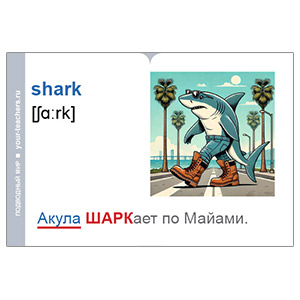Тест №15 по ЕГЭ. Английский язык (Ответ)
- Подробности
- 25099
 |
||
| Прочитайте текст с пропусками, обозначенными номерами. Эти номера соответствуют заданиям А21-А28, в которых представлены возможные варианты ответов. Обведите номер выбранного вами варианта ответа. TEST 15 ( part 3) |
We take it for A21 granted that a week is seven days, but where does the idea come from, and where do the names for days of the week come from? It's difficult to be certain, but we can make some educated guesses. The story starts in ancient Babylon, the capital city of an empire in what is now Iraq. The Babylonians were A22 keen on astronomy and were interested in measuring time. It is from them that we have A23 inherited the idea that there are sixty minutes in an hour and sixty seconds in a minute. Unlike the Egyptians, who divided their months into sets of ten days, the Babylonians split the month A24 up into four lots of seven days. The Hebrews, in ancient Israel, used the seven-day week, as we can see from the first book of the Bible, which describes God creating the Earth in seven days. Christianity A25 spread the idea to the Romans, who used a seven-day week throughout their empire.
In some languages, such as Russian and Greek, most of the days of the week are named after their numerical position (first, second, etc). However, in English the days A26 take their names from gods, as they did in Latin. When the Angles and the Saxons invaded England in the 500s, they kept some of the local names (Sunday, named after the Sun, Monday after the Moon and Saturday after the planet Saturn), but named others after their own gods. Tuesday is named after Tiw, the god of war, while Wednesday is the day of Odin (or Woden as he was also known), who was the A27 chief god in Anglo-Saxon mythology. Odin's son, Thor, gives us Thursday. The Angles and Saxons believed that thunder was the sound of Thor's magic hammer. Friday is the only day of the week to be named after a goddess - Freyr. Freyr was the goddess of love and stories about her describe her as being very beautiful. She travelled in a wagon pulled by eight cats and could change herself into the A28 shape of any bird.
|
A21 |
1) granted Take (smth) for granted - принимать на веру, принимать как должное; устоявшееся выражение |
2) given |
3) assumed |
4) presumed |
|
A22 |
1) obsessed |
2) eager |
3) keen To be keen on smth - увлекаться чем-либо; из 4-х слов только keen может употребляться с on |
4) enthusiastic |
|
A23 |
1) donated пожертвовали |
2) requested запросили |
3) inherited унаследовали |
4) descended передали по наследству |
|
A24 |
1) up Split up - разделять на части |
2) out Split out - нет такого сочетания |
3) off Split off - откалывать, отделять |
4) on Split on - нет такого сочетания |
|
A25 |
1) repeated повторять |
2) broadcast транслировать |
3) shared поделиться (share with smb, поэтому здесь share употребить нельзя) |
4) spread распростронять |
|
A26 |
1) give дали |
2) have имели |
3) make сделали |
4) take взяли, переняли |
|
A27 |
1) lead лидирующий |
2) chief главный |
3) front передний |
4) advance передовой, продвинутый |
|
A28 |
1) condition состояние |
2) set набор ( и мн. других значений) |
3) state положение, состояние |
4) shape форма |








 Как правильно изучать английский язык по карточкам (статьи)
Как правильно изучать английский язык по карточкам (статьи)